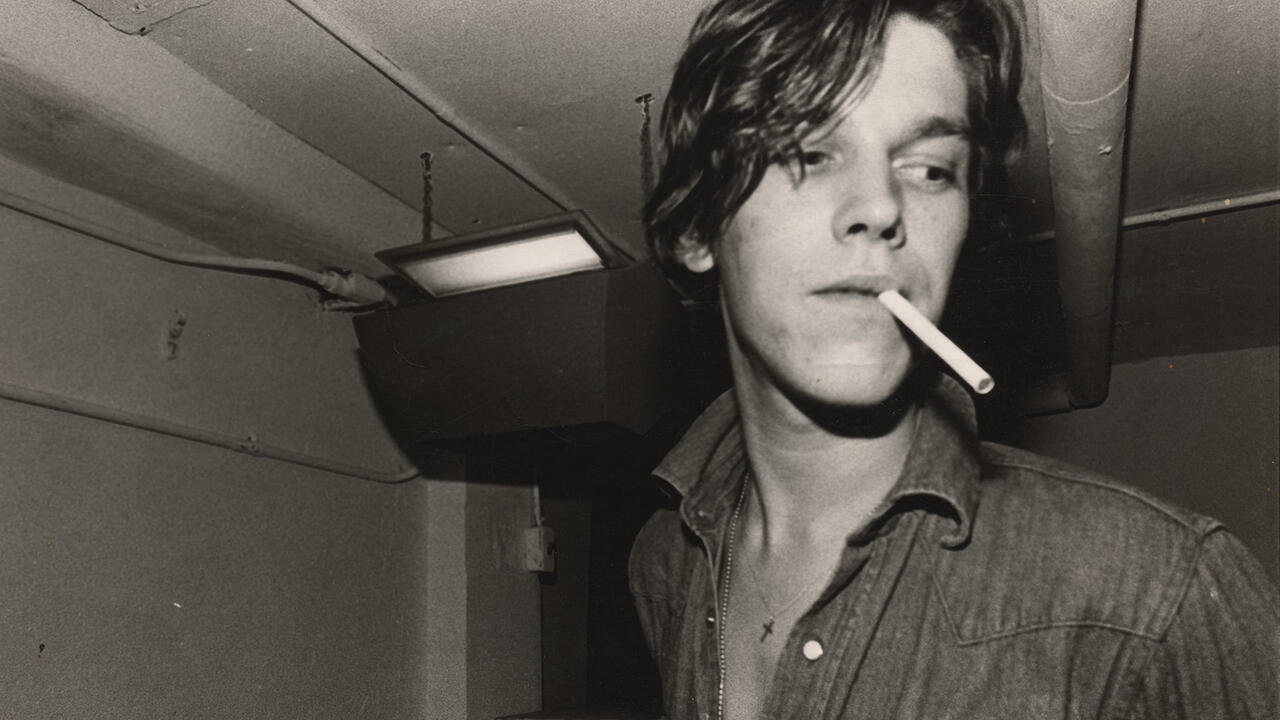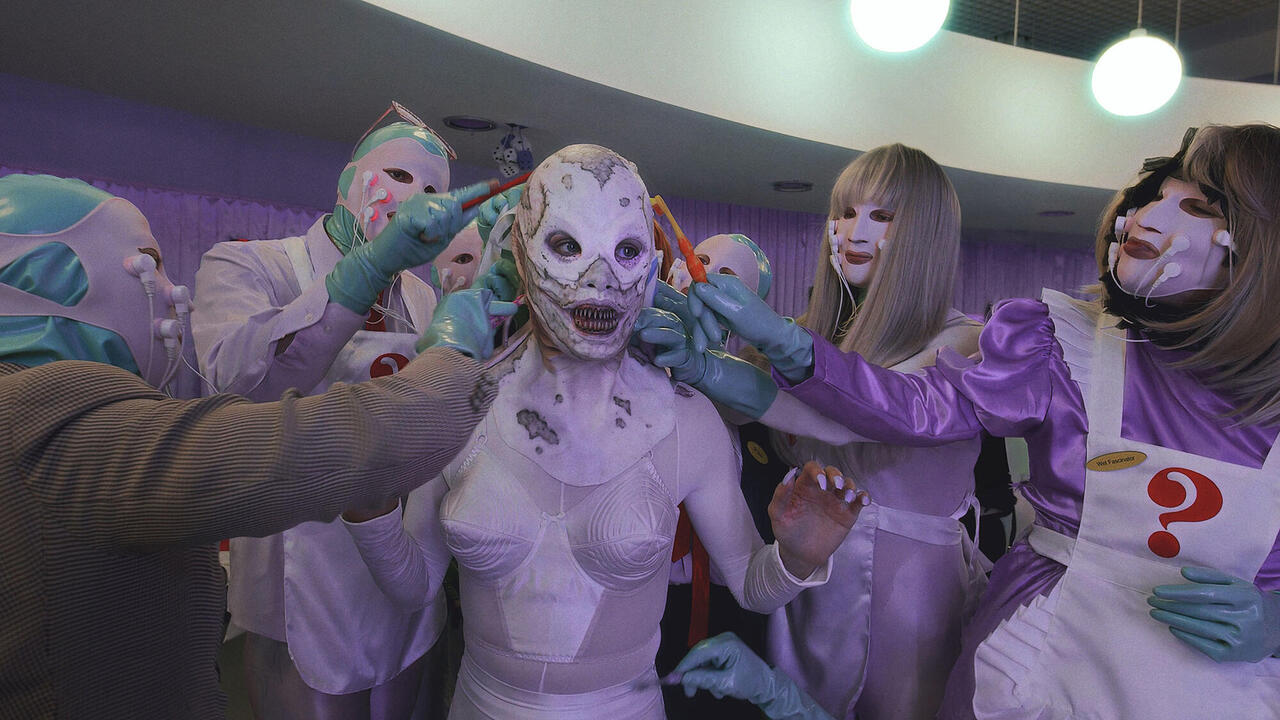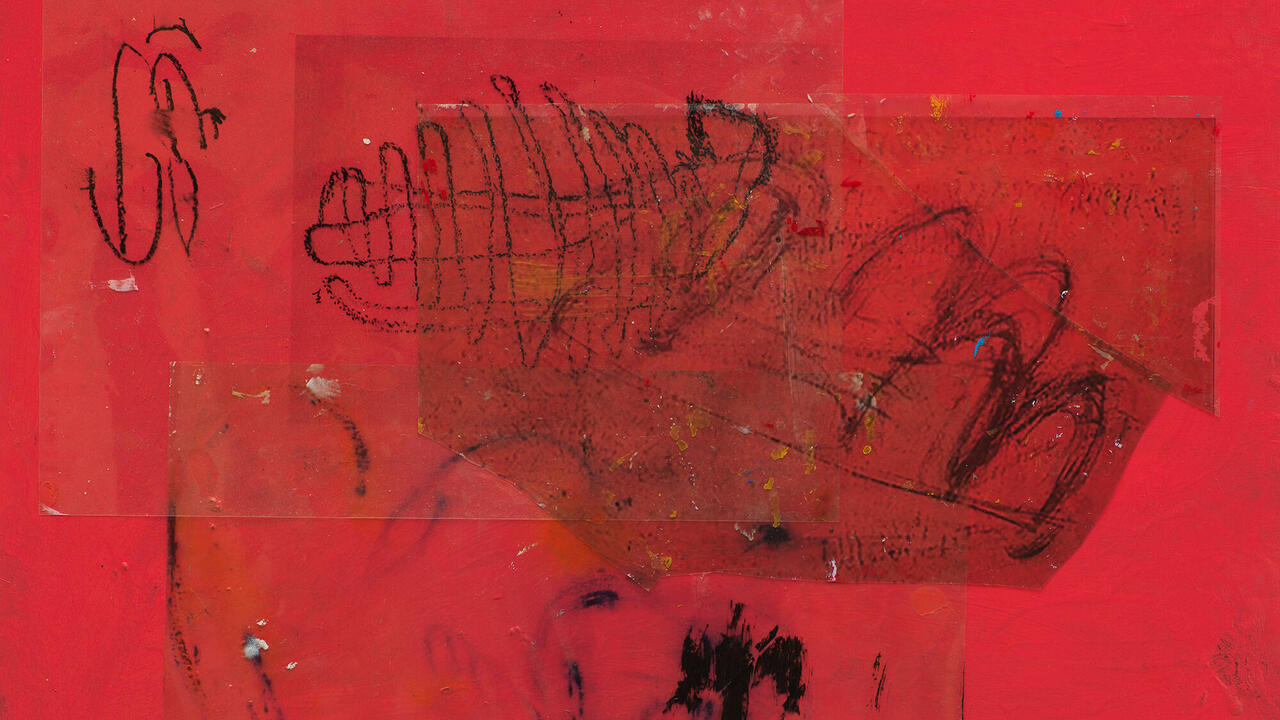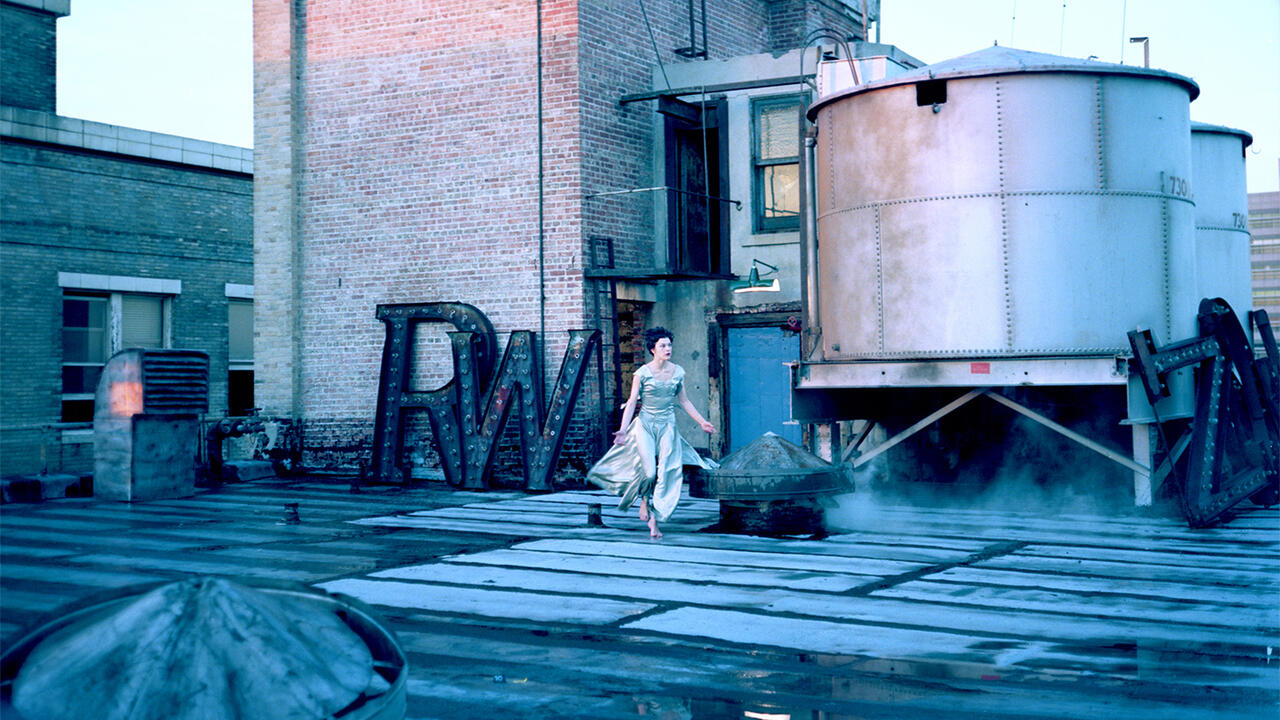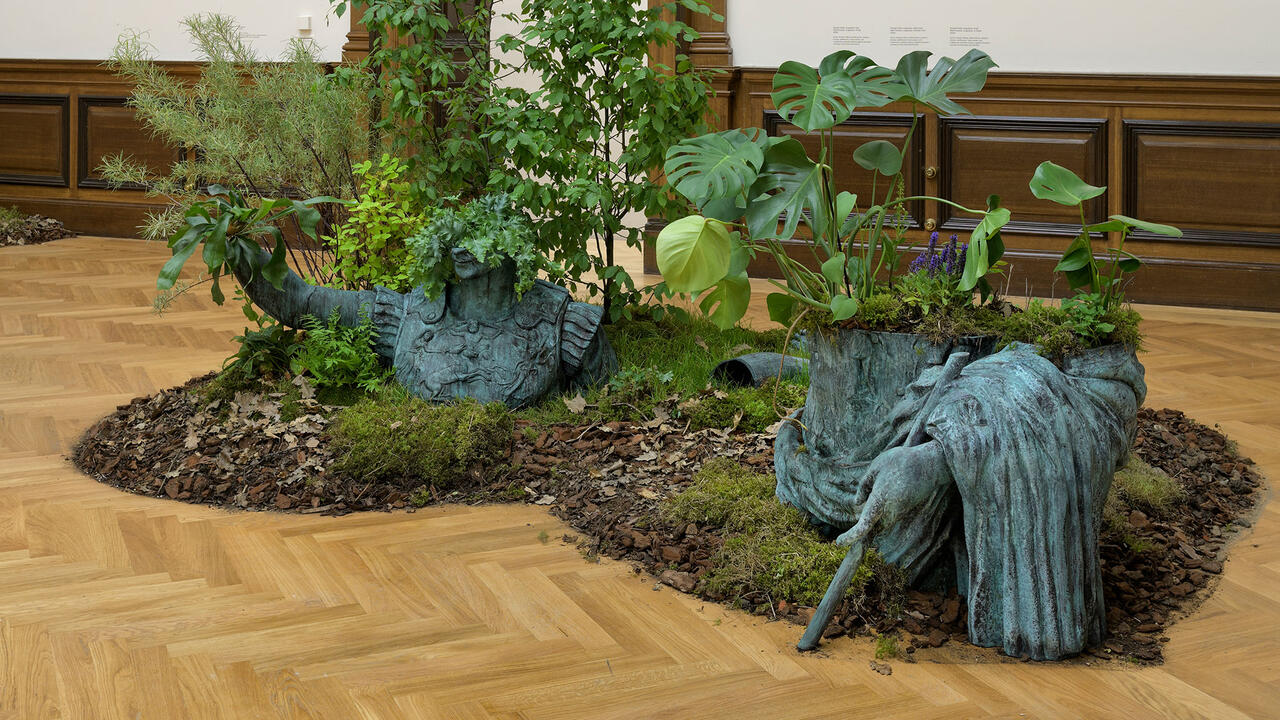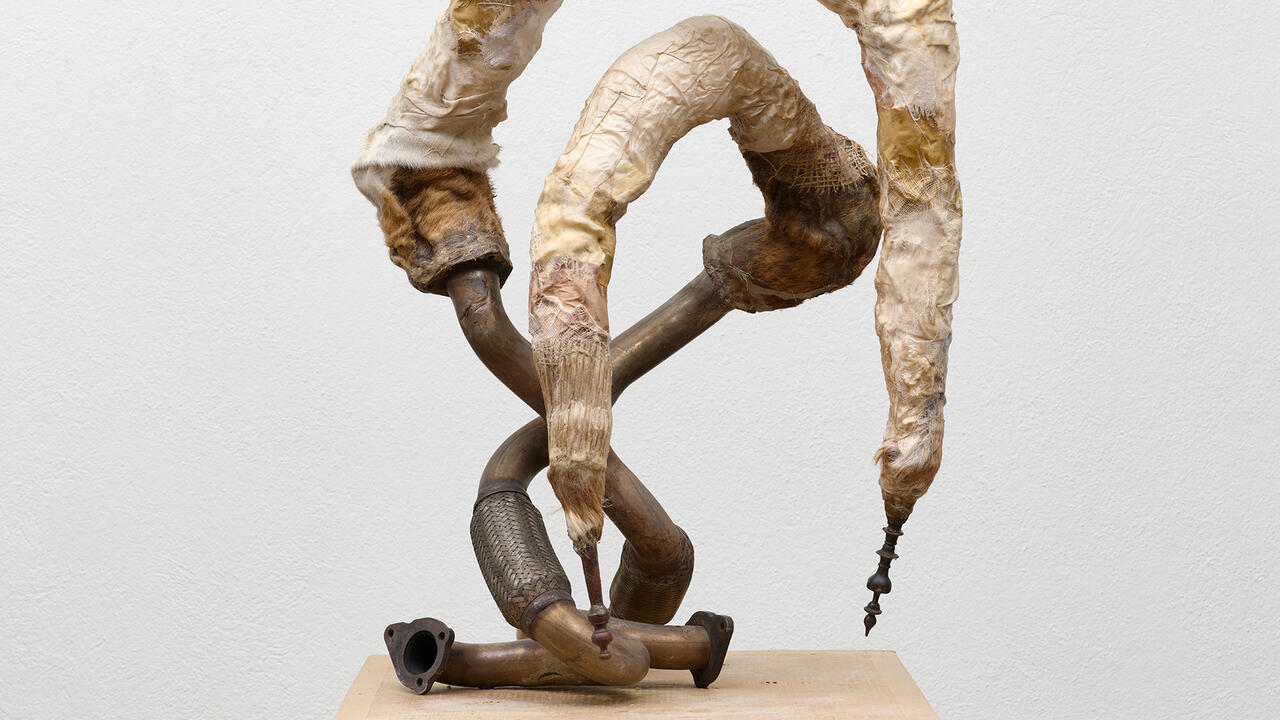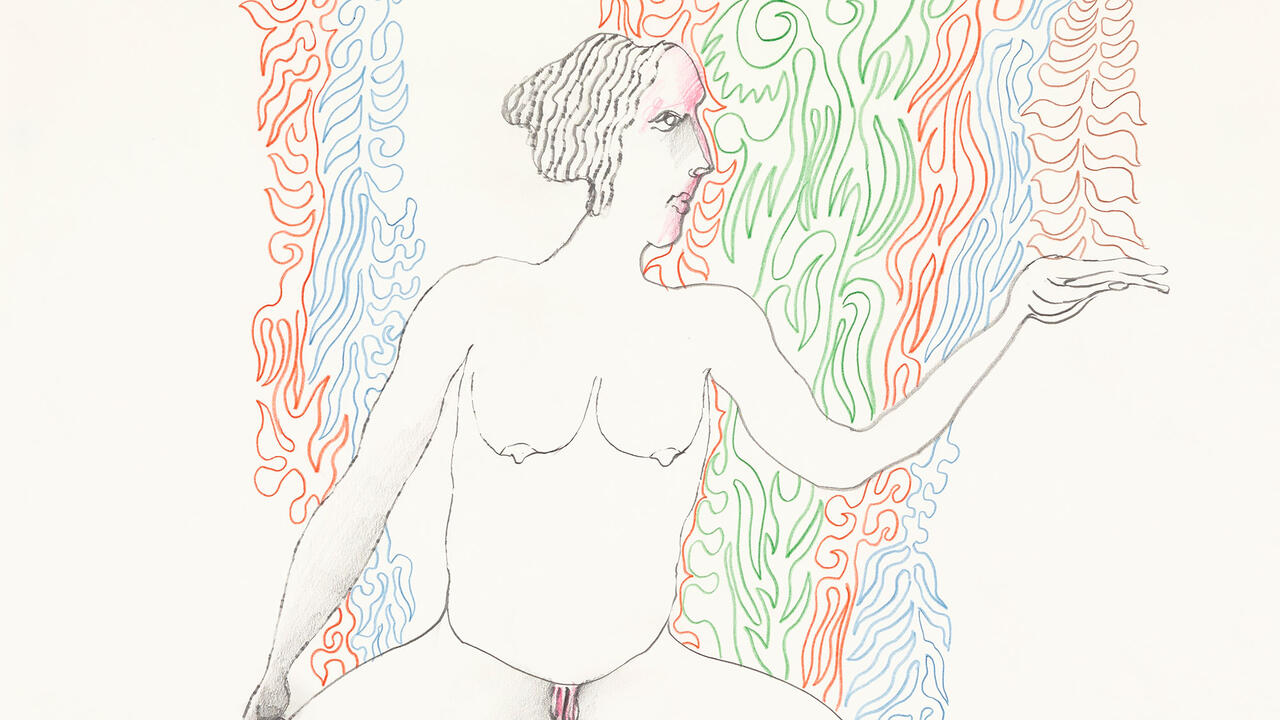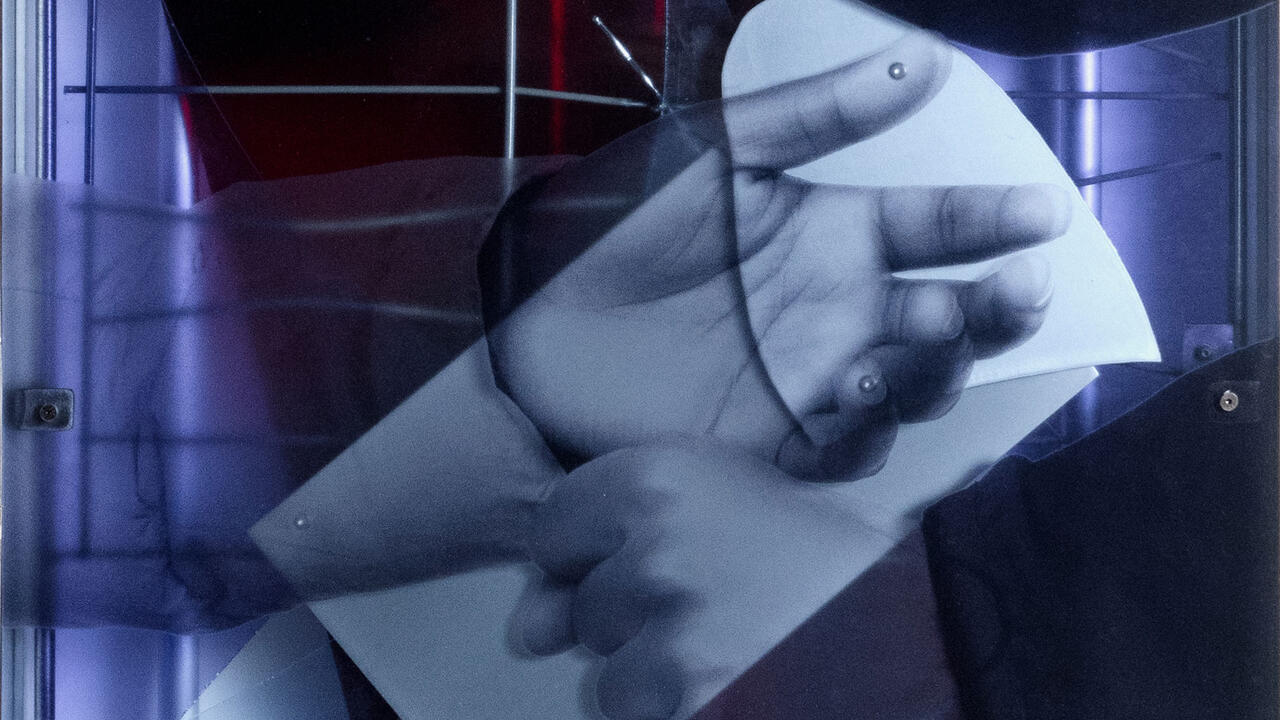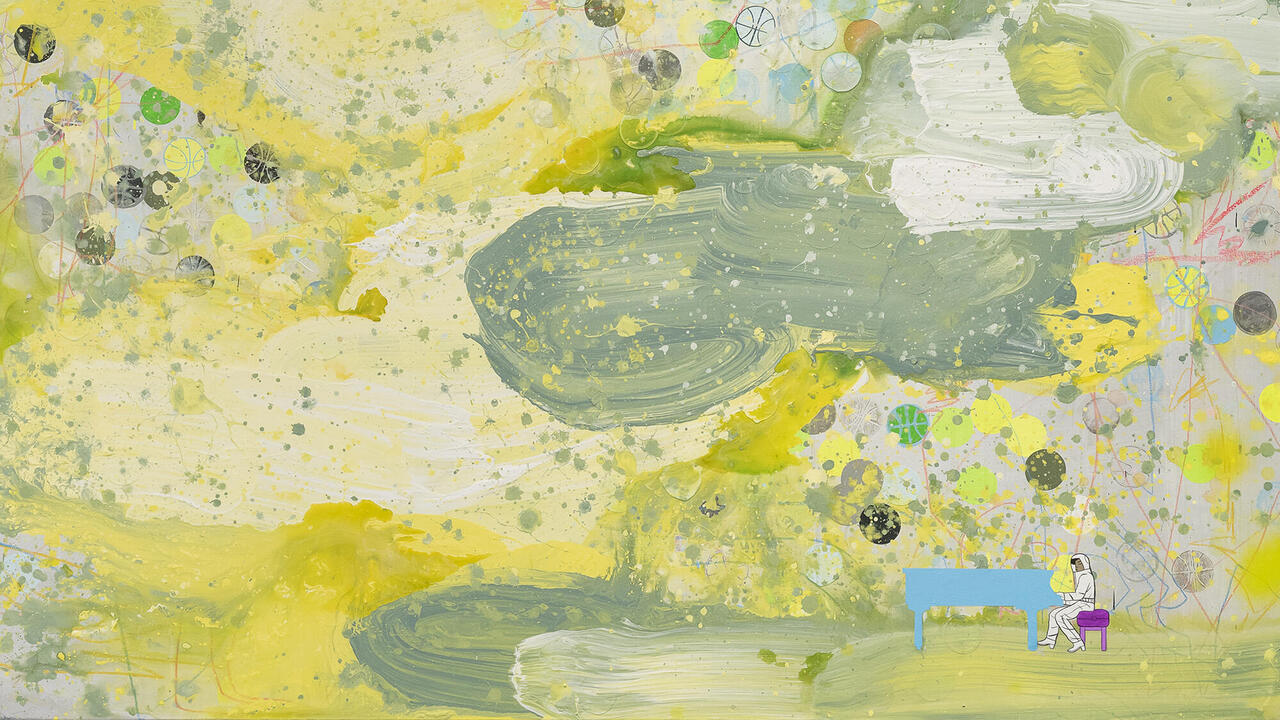Bernice Mulenga Photographs Black Queer Nightlife
In a series of formally playful snapshots at Goswell Road, Paris, the artist captures intimate moments of love and care
In a series of formally playful snapshots at Goswell Road, Paris, the artist captures intimate moments of love and care

A pair of platform heels jut skyward, frozen mid-kick. Beneath them, their owner lies sprawled on their back, face eclipsed by the body of a kneeling figure in a fishnet dress. Dollar bills carpet the floor like fallen confetti. Though the image is silent, you can almost feel the room throb with bass – the kind that rattles ribcages and melts inhibition. Drift (2024) is one of several enlarged photographic negatives from Bernice Mulenga’s exhibition ‘Malembe, Malembe’ at Goswell Road, a non-profit gallery in Paris’s 10th arrondissement. Here, an intimate selection of 12 photographs offers viewers a snapshot into the nightlife of the Black queer community from the photographer’s ongoing archival series ‘#friendsonfilm’, which they started in 2015.
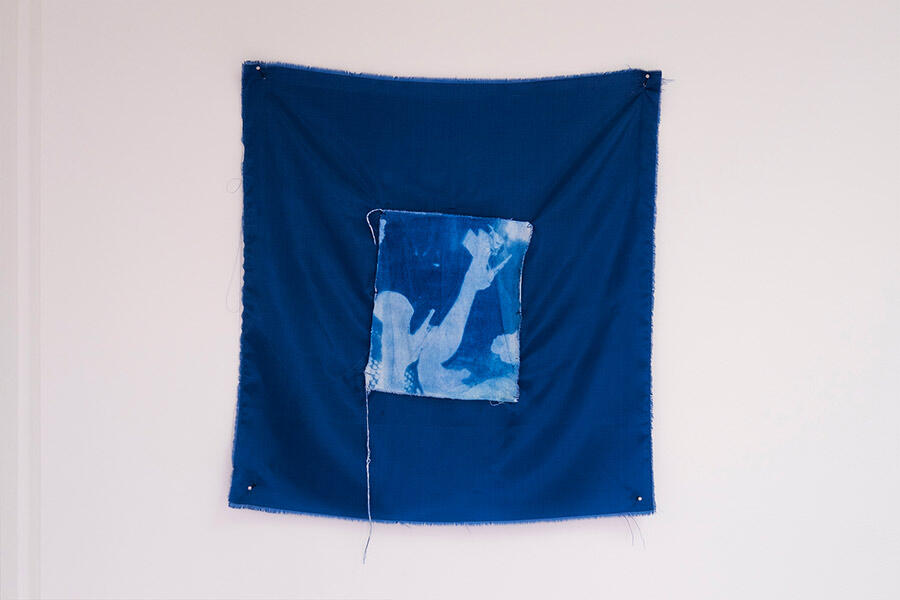
Within a striking presentation of enlarged acetate negatives and cyanotypes printed on cotton canvas sit four analogue photographs with a slightly grainy, nostalgic quality. Each is mounted on a custom-made stainless-steel frame, evocative of the trays upon which drinks are brought out at nightclubs. These images present fragments of the bodies of couples engaged in embrace. In Lime (2025), a torso swathed in a fluorescent jumpsuit intersects with a figure in a palm-tree patterned outfit. In Together Again (2025), two bodies are shown from behind; the one closest to the camera – with short, bleached-blonde hair – wraps their arms around the second, who is almost obscured, save for a shoulder and the edge of a salmon-coloured mesh top. In these shots, Mulenga purposely excludes the faces of their subjects, capturing fleeting moments of joy and intimacy whilst respecting the revellers’ anonymity.
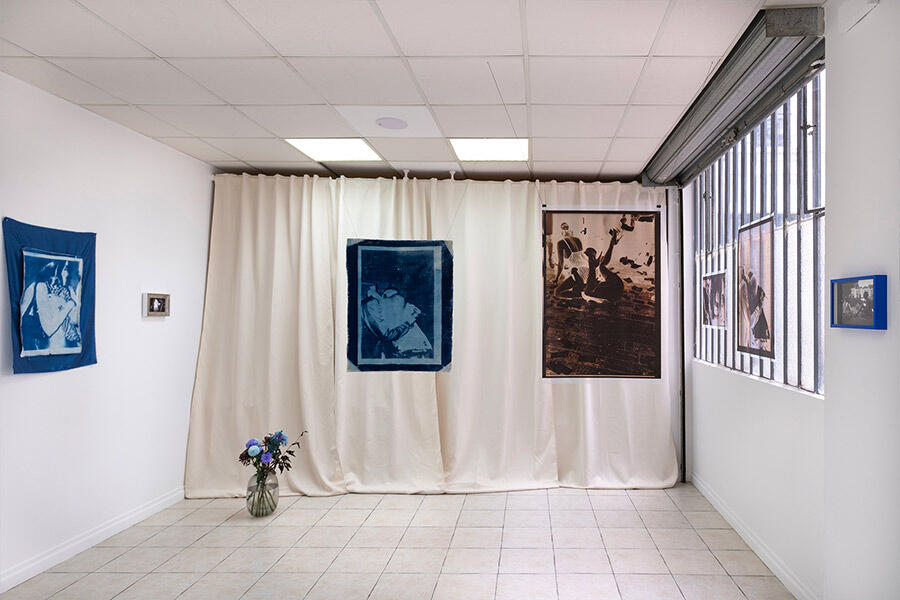
Abby & OJ I (2021) and Abby & OJ II (2021) – portraying the artist’s sister and her best friend in an urban setting – have the aesthetic of traditional silver gelatin prints. They are smaller and quieter than the other works, perhaps reflecting the close personal connection and sustained relationship between artist and sitters. Printed in black and white, there is a stillness to these images that is in sharp contrast to the vociferous energy of the house party photographs. The only thing that breaks their relative silence are the simple but loud electric-blue frames in which they are encased.
The colour blue recurs throughout the exhibition, in the cyanotype prints that hang throughout; in the frames of the photographs of Mulenga’s sister; and in a striking bouquet of dyed chrysanthemums, carnations, weeping purple beech leaves and sea lavender (a trademark of Goswell Road’s exhibition curation). Yet, in the exhibition literature, Mulenga stresses that this emphasis on blue should not be regarded as a melancholy symbol, but rather a signifier of ‘fluidity, security, stability and connectivity’. Indeed, throughout the exhibition, Mulenga’s photographs capture moments of kinship and connection, both enduring and transitory, and of bodies touching and holding – core themes in the photographer’s practice.
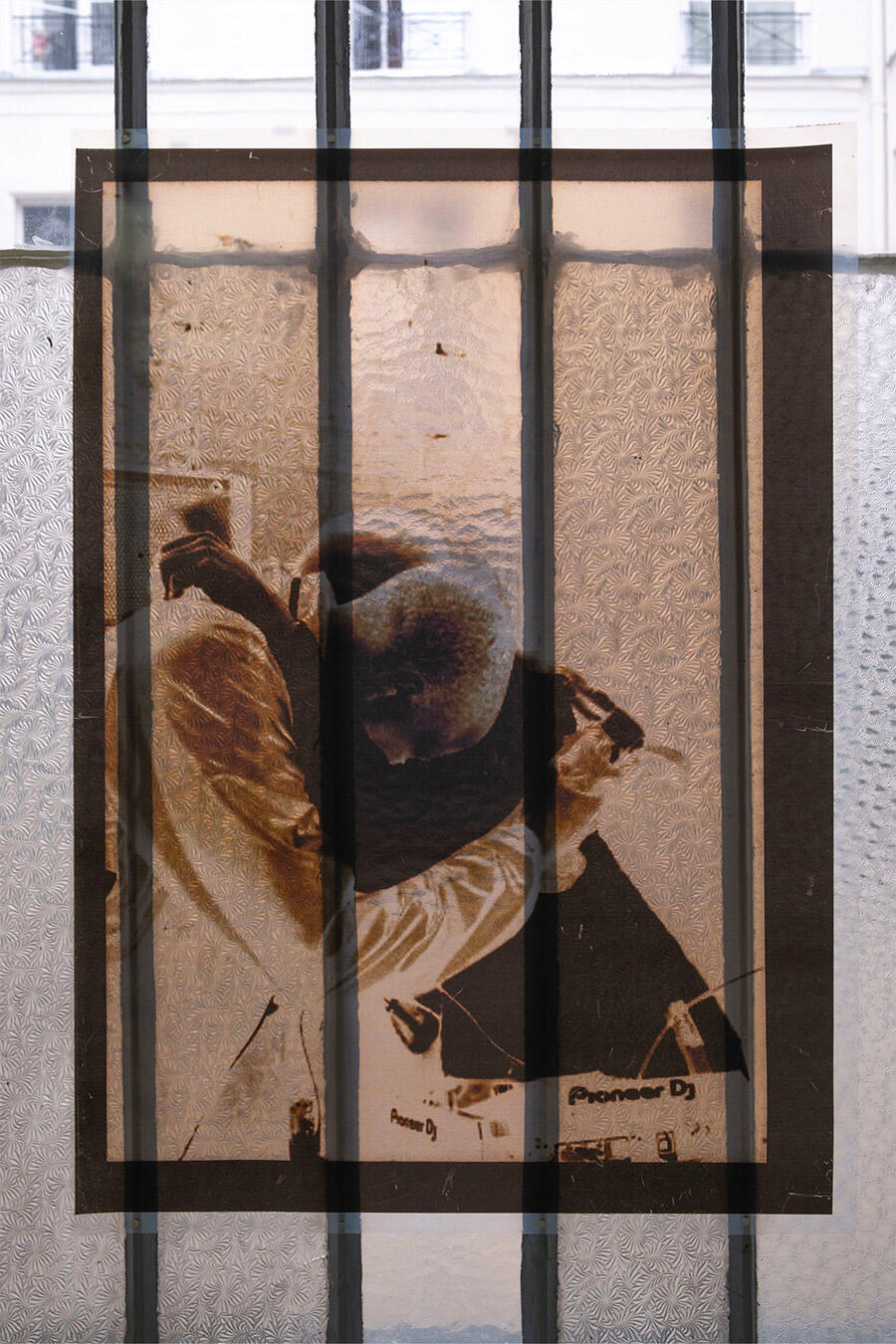
Looking at these works within the intimacy of Goswell Road’s small gallery space, I’m reminded of John Berger’s words in Permanent Red (1960): ‘A valid work of art promises in some way or another the possibility of an increase, an improvement.’ Mulenga’s quiet exploration of intimacy – within themselves and within the Black queer community – produces a series of almost deliberately banal images: of people simply existing. Within that banality, however, lies the ‘improvement’ Berger seeks from a work of art. To exist ordinarily, rather than heroically, is a radical act in a world shaped by structural and historical racism, extractive capitalism and institutional erasure. Mulenga’s images push back against these forces not with spectacle, but with tenderness. They appear as fragments – hallucinations, even – of a life shaped by love and care, animated by the freedom to love whom one chooses and to be wholly oneself.
Bernice Mulenga’s ‘Malembe, Malembe’ is on view at Goswell Road, Paris, until 19 July
Main image: Bernice Mulenga, Meeting at Your Waistline (detail), 2025, negative on acetate. Courtesy: the artist and Goswell Road, Paris










